We are living in a connected world in almost every aspect of our lives. Whether for work, home, or travel, we are usually just a pocket reach away from connecting. Not surprisingly, camping is not much different. While it is a way to disconnect from the world, most of us do that marginally. Reliable internet is a service that the RV community wants. Don’t believe me? Take a walk around any campground and count how many people you see sitting in a camp chair on a smartphone. RV camping is not off-the-grid living for most of us. Rather, I think it’s more about being selective in how we want to stay connected.
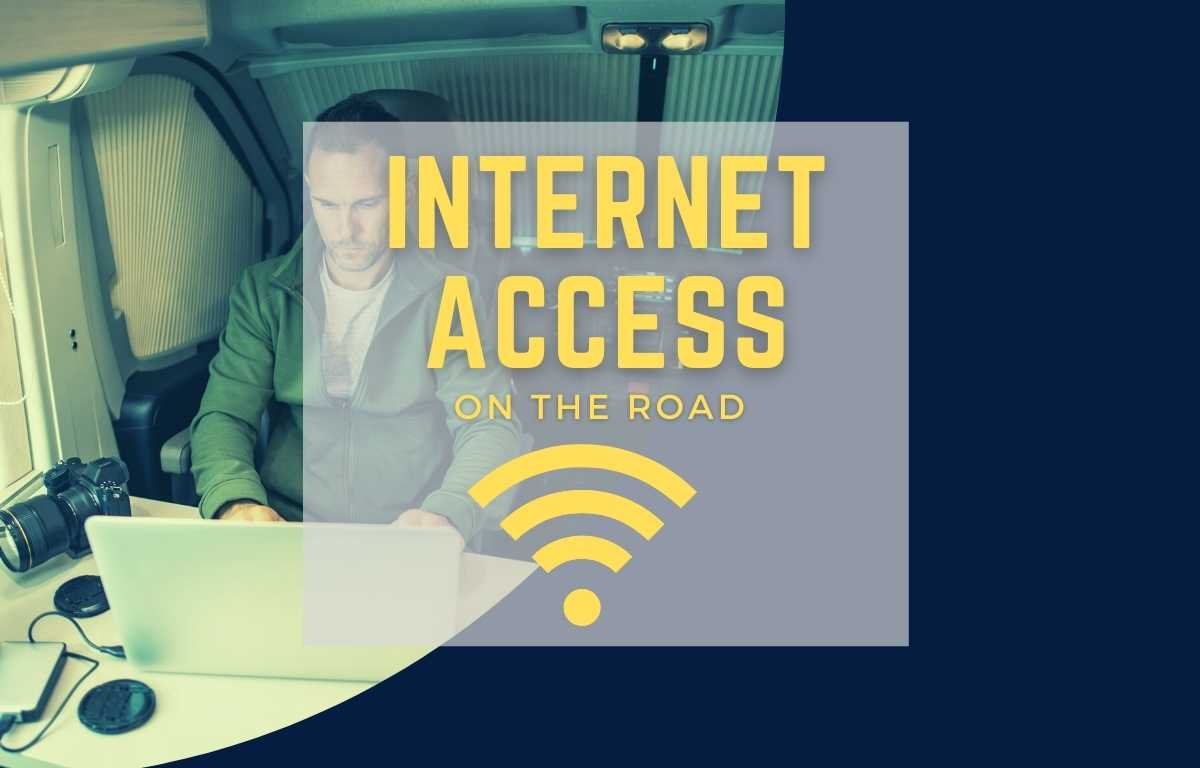
Do you want to do a fun little experiment to see how much you rely on the internet on any given day? If so, when you leave for work in the morning, keep your phone at home. Carry a note pad and every time you reach for your phone or think about checking it, mark it down. I bet your score will be a little bit shocking.
I always assumed that most people who enjoy RV camping have some desire to stay connected. Look at any RV discussion board, forum, or social media group; internet access is a frequent topic of discussion. However, it was only an assumption. If I wanted to know for sure, I needed to do a little research on this topic.

I put together a short survey with ten questions related to RV internet access. I reached out to the RV community through various RV-related forums and social media groups and asked members to share their opinions. Over a few days, I received 49 survey responses from a diverse subset of the RV community. While this is not a scientific study, it does provide some interesting insights into the RV community’s thoughts on reliable internet access.
Below, I’ll attempt to describe some of my findings in detail and do my best to interpret what they mean.
The Data on RV Internet Access
I first wanted to find out more about the people taking the survey. I was curious if different types of campers had varying internet needs. The first question asked about their style of RV. Out of all the survey responses, just about half of the participants camp with a travel trailer. The second-highest number of responses came from the motorhome/coach community. I don’t know how this compares to the overall distribution of the RV community, but based on my observation when camping, it seems close to what I would expect.

The next question focused on camping style. I wasn’t sure what to expect here, but I did receive a good mix of different types of responses. Surprisingly, and perhaps this is due to the nature of the survey, the highest amount of responses came from full-timers. Close behind were the folks who take several longer trips per year- I like to think of them as the vacation crowd. The other groups include the once-a-month campers, weekend warriors, and infrequent campers. However, for the importance of interpreting the survey results, you should note that most of the responses came from frequent campers; these individuals are on the road quite a bit.
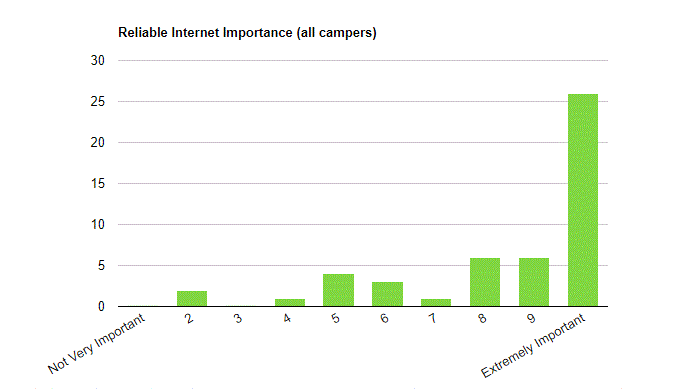
Realizing that over 90% of people taking this survey are frequent campers, I was curious to see what they thought about having access to reliable internet. Overall, more than 80% of responses indicated that reliable internet access is very important to them (identified by a score of 8 or more on a scale of 1-10). There were not many people who indicated the opposite.
Realizing that people want to stay connected, the next obvious question to ask is why. How are people using the internet when camping? Since there are multiple ways that we all use the internet, I asked participants to select their top two needs. There were three primary categories identified: Video streaming, email/staying connected with others, and working remotely. It is not overly surprising, but it does help to identify some trends that we’re seeing in the RV community.
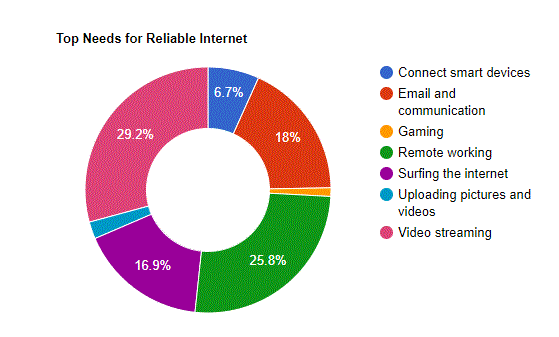
One of those trends is remote work. The responses probably would look much different if people had answered that question a few years ago. As a result of the pandemic, I think it’s safe to say that people are and will continue to earn a living on the road. I also wasn’t surprised at the large number of responses that the survey received for video streaming. Outside of camping, people have been cutting the cord and relying on streaming services for their entertainment. The other surprising category identified was connected devices. With the advent of SMART RV appliances, I only expect this need to grow. Some unique uses that I have read about include Wi-Fi thermostats and pet monitors. I’m curious about other gadgets that are available or will be in the future.
The next question asked pertained to upload speed. Is it important? I included this question because many of the available internet options have starkly different limits for upload speed vs. download speed. With increases in remote working and video conferencing, I see this as a limitation of the available internet connection options. More than half of the responses indicated that upload speed is important to the RV community. I am guessing that they spend a lot of time on Zoom.
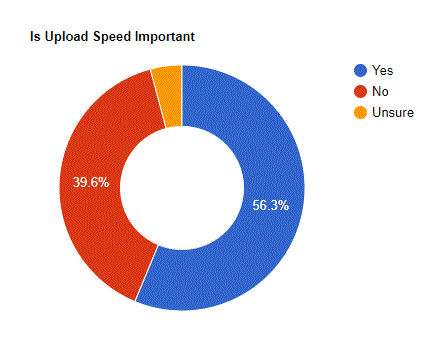
Next, the survey asked about download speeds. What do folks consider to be an adequate speed for their internet needs? More than half of the responses stated that 50 Mb/sec was enough for their needs. Only about 15% of people indicated they require more than that amount. Nobody responded as needing more than 75 Mb/sec. Surprisingly, about 60% of individuals indicated that they would be happy with download speeds that provide at least 25 Mb/sec.
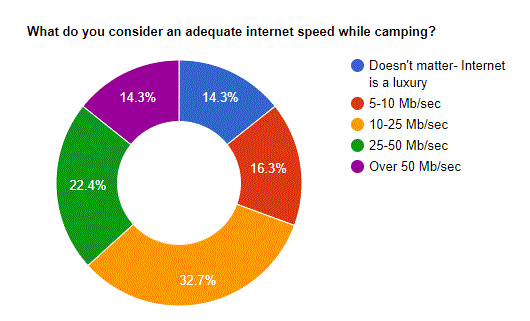
The next couple of questions focused less on internet needs and more on how people are currently connecting. With the limited available options, I was curious about what steps people are taking to stay connected. Nearly 90% of campers rely on cell service data to connect. Either through a phone-based hotspot (40%) or a dedicated device such as a GSM modem (48%). Only 9% of people rely on campground Wi-Fi, which is best categorized, in my experience, as very unreliable (and slow). Interestingly, one person mentioned using satellite internet (Starlink) in a fixed camping location.
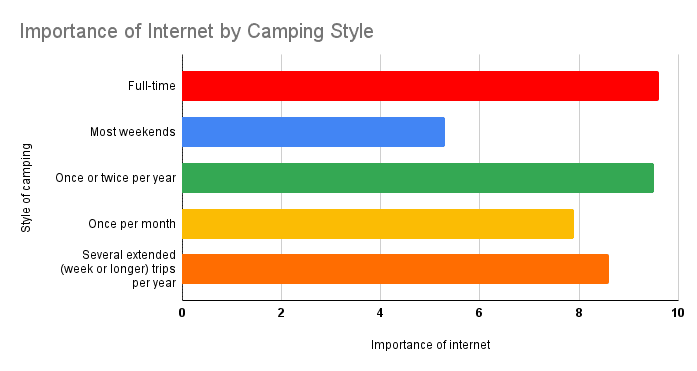
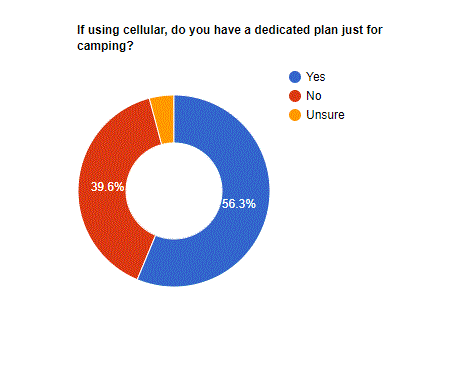
Since most campers connect via cellular service, I asked if they have a dedicated plan just for camping. Almost 60% of responses indicate that they are using a dedicated line. I was surprised by this since these plans can be expensive.
Lastly, after learning more about the needs, uses, and ways the RV community connects, I was curious about what people are willing to pay for reliable service. 14% of responses indicated that they don’t want to pay for additional services and are content using their phones. Of the folks who would pay for reliable service, most (37%) would be willing to pay up to $50/month. Not far behind, 33% of people would only pay $30/month. The higher-end options of $75-$100/month were only viable for about 16% of campers. This data tells me that the sweet spot for a reliable service is probably around the $40/month range if the download speed is within the 25-50 Mb/sec range.
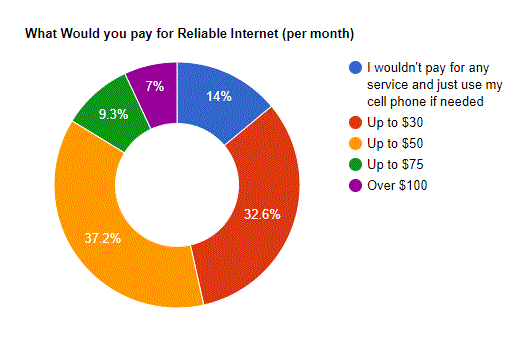
My take-away from this effort
Reliable internet while camping is not just a luxury; it is something that the community wants and in many cases, needs. It is not only about connecting to the world but also surviving in it. While most members of the RV community travel for recreation purposes, many individuals make their living and provide for their families from the road. I can only imagine that this trend will continue to grow in the years to come.
There are not many reliable options available for meeting this need, but hopefully, that will change in the future. One significant change on the horizon will be the advent of mobile satellite internet services, such as Elon Musk’s Starlink. In the interim, people are doing what they can to stay connected. Cellular service is still the most reliable way to do it, but it’s not an option for everyone. Also, over the past several years, that option has become more cumbersome and expensive. Tethering limits and data caps make cellular service a less desirable solution.
For the internet providers out there, the market is ready. Not only is there a demand, but people are willing to pay for it. The data needs aren’t excessive; if there was a reliable option out there, I think the RV community would jump on it. The sweet price point seems to be around $40/month for about 25-50 Mb/sec download speed. Also, don’t forget about upload speed; that is important too. If you’re listening, AT&T, I just helped you with some market research.
Technology is interesting. If someone were to revisit this topic in a few years, I would guess that the feedback would look much different. However, there is one thing that I don’t think will change; that is demand. We live in a connected world that will only continue to get more connected in the future.

Good article, very comprehensive. Did not mention Wineguard, not sure if it includes some of the ones you did mention?
Only 9% use c.g. wifi? I guess out here in Ca. it has to be higher than that. I’m fine during the week just checking email but when the weekend comes forget it. Many admit to streaming with it…I think that’s wrong. If you’re not satisfied with over-the-air or cable reception why don’t you just use your own provider without stealing all the food at the potluck?
If you are streaming and gaming all day – why not stay home? No need to “RV” …